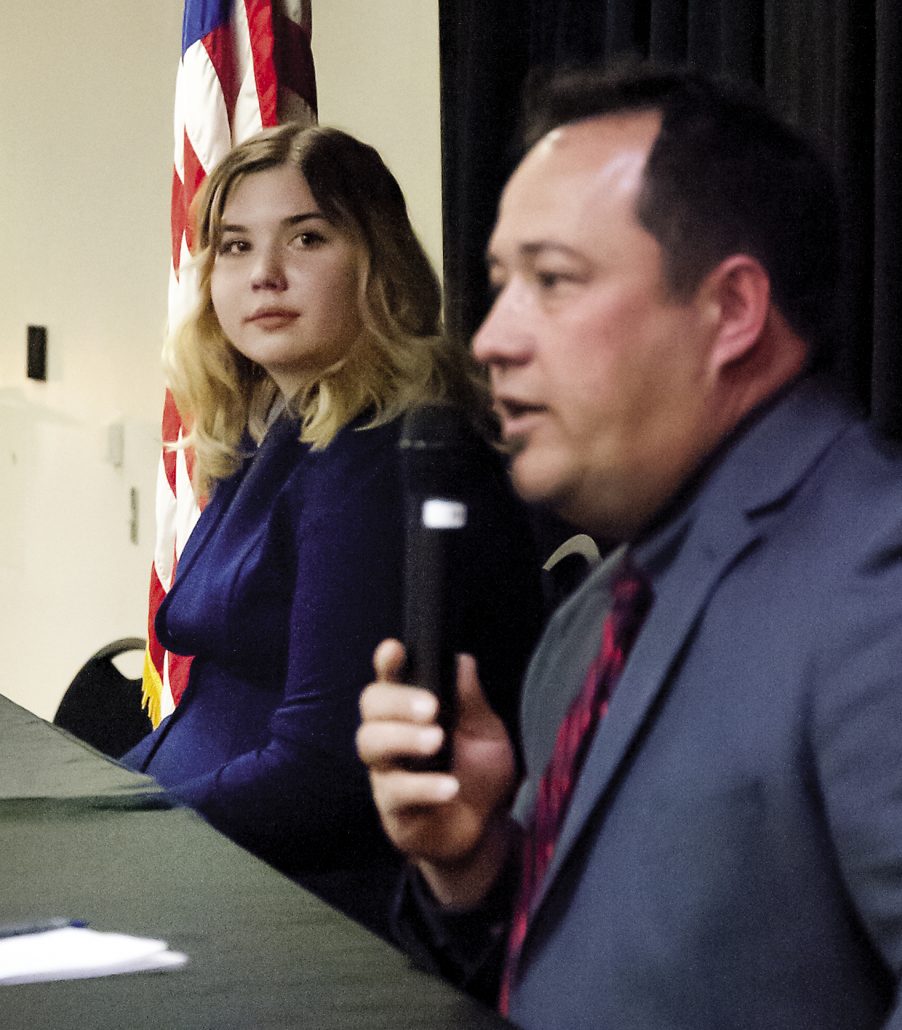
By Per Peterson
Regional House and Senate candidates on both sides of the aisle took their turns criticizing the State’s reaction to the pandemic this spring and summer at a political forum at Southwest Minnesota State University last Wednesday evening.
Candidates taking part in the political event, which dates back to 1992, included Senate District 22 incumbent, Republican Bill Weber, and his DFL challenger Shawna Marshall; and House District 16A incumbent, Republican, Chris Swedzinski, and his challenger Doria Drost. Republican Joe Schomacker (House District 22A) and Senate District 16 Republican incumbent Gary Dahms also answered questions from media members and the public, but their respective opponents were unable to attend (the event had to be rescheduled because a special session was called). Brian Abrahamson of the grassroots Legalize Cannabis party, another challenger to Weber, was also unable to attend.
The town hall forum was co-sponsored by the SMSU Political Science Department and the Marshall Area Chamber of Commerce.
The first question of the night for Weber and Marshall focused on what the State should’ve done differently in response to the pandemic.
Marshall said a new plan to deal with future COVID-19 outbreaks needs to be put in place — one that focuses on a certain set of criteria that respects different regions of the state.
“We need to create a system for Minnesota that is a tiered system — with certain criteria, we bump up to the next tier,” Marshall said. “This can depend on the district, so we’re not making blanket reactions for the entire state. As we all know, what’s going on in the Cities is very different than what’s going on in Minnesota.”
Weber said COVID-19 patients should never be put back into nursing homes after being diagnosed. He said the State made a “tragic mistake” in allowing infected elderly people back into nursing homes.
“We haven’t had a really good answer as to who is responsible for making that decision, but it was not the right decision to make,” Weber said.
The senator also said shutting down the state was a big blow to the economy. He said when he visited with Gov. Tim Walz in April after the JBS outbreak in Worthington, Walz asked what he should be doing, and Weber said Main Street needed to be opened up again.
“I said what you’re doing by forcing everyone to go into the big box stores is you’re accomplishing the very thing you say you’re trying to avoid, and that is put people in contact with one another,” said Weber. “I don’t have a problem with the box stores being open, but I told him our Main Street businesses need to be open.”
Like Marshall, Schomacker said a regional-based response to the pandemic is better for everyone, compared to what amounted to an initial state-wide reaction. And he said mask mandates have, in a sense, backfired, and compelled people to avoid wearing them.
See this week’s Headlight Herald for more on this article.
